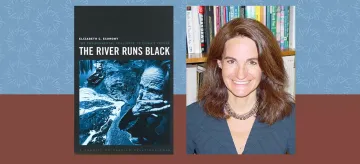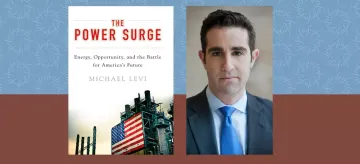Search 120 results
- Remove filter: Climate & Energy
- Remove filter: Nuclear Proliferation
Filter by
Events
Series


Learn how the world can lower greenhouse gas emissions and reduce the threat from climate change.


In this book, CFR Senior Fellow Elizabeth C. Economy uses historical research, case studies, and interviews with officials, scholars, and activists in China to provide insightful analysis of the economic and political roots of China’s environmental challenge as well as the evolution of the leadership’s response. Teaching notes by the author.
- Students will analyze various policy tools for nonproliferation and then apply them to hypothetical situations.
- Students will understand the basics about the development of nuclear weapons and the impact on international relations since the end of World War II.
- Students will evaluate past and present nuclear threats and reflect on why these threats have changed over time.

Building a Resilient Tomorrow draws on international and national examples, some revealed for the first time, to provide an interdisciplinary narrative covering a range of climate resilience solutions.

In this book, CFR Adjunct Senior Fellow Rachel Bronson presents the first full history of the U.S. relationship with Saudi Arabia, revealing why the alliance was formed and what we stand to lose if it collapses. Teaching notes by the author.

Solar energy, the world’s cheapest and fastest-growing power source, could one day supply most of the world’s energy needs. In Taming the Sun, however, Varun Sivaram warns that solar’s current surge is on track to stall, dimming prospects for averting catastrophic climate change. Brightening those prospects, he argues, will require innovation—creative financing, revolutionary technologies, and flexible energy systems.

In this book, CFR Senior Fellow Michael A. Levi combines on-the-ground reporting with in-depth analysis to illuminate what’s really happening as the fracking industry takes root. Teaching notes by the author.